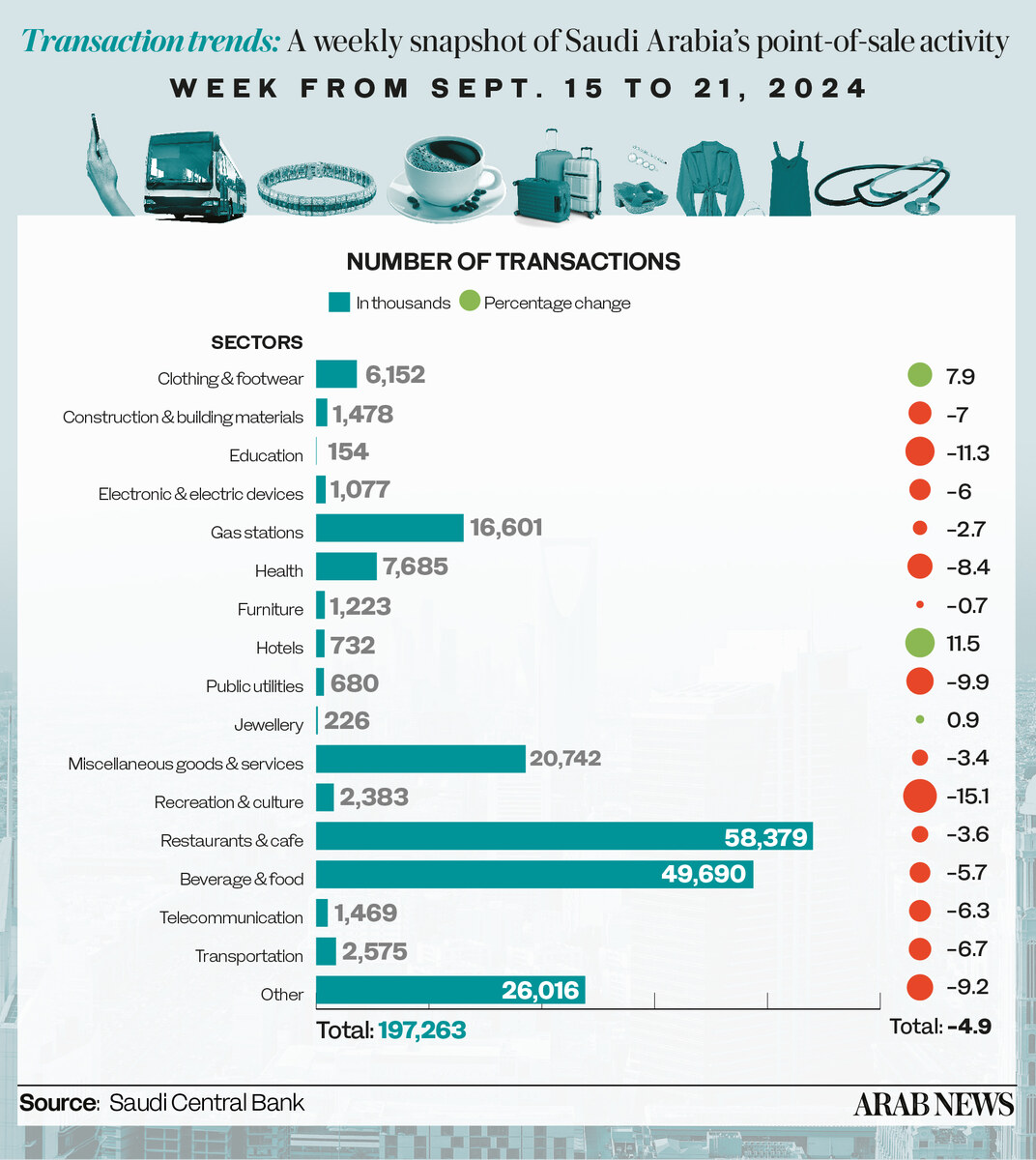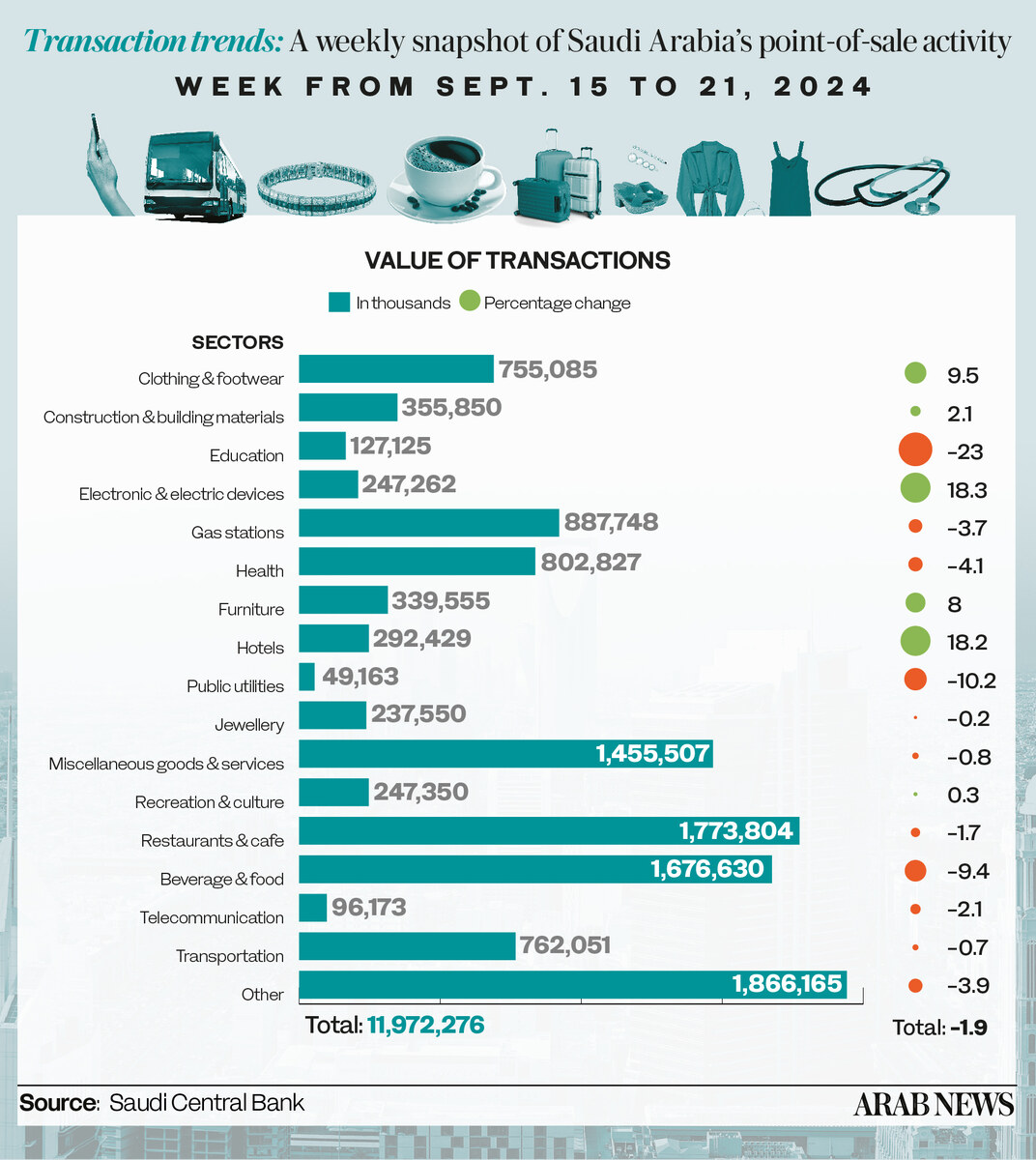RIYADH: Consumers in Saudi Arabia spent SR247.2 million ($65.8 million) on electronics from Sept. 15 to 21, reflecting an 18.3 percent rise compared to the previous week, according to central bank data.
The weekly point-of-sale bulletin released by SAMA revealed that spending in the hotels sector also rose, reaching SR292.4 million, marking an 18.2 percent weekly increase.
These two sectors experienced the highest and second-highest growth, respectively.

Restaurants and cafe sector accounted for the largest share of the POS at SR1.77 billion, followed by food and beverages at SR1.67 billion and miscellaneous goods and services at 1.45 billion.
Spending in the top three categories accounted for SR4.9 billion of this week’s total value.
The overall value of POS transactions dipped for the third week in a row, dropping by 1.9 percent compared to the previous seven days to reach SR11.9 billion.
The latest figures showed that spending in the education sector continued to lead the decline, recording the highest decrease at 23 percent, with total transactions reaching SR127.1 million.
This sector has been experiencing falls for over a month after surging for four consecutive weeks, coinciding with the start of the academic year on Aug. 18.
During the first week of September, spending on public utilities saw the second-largest drop at 10.2 percent to SR49.1 million.

Spending on food and beverages recorded the third most significant dip, with a 9.5 percent negative change.
Expenditure on jewelry recorded the smallest decline at 0.2 percent, reaching SR237.5 million.
Geographically, Riyadh dominated POS transactions, representing 34.6 percent of the total, with spending in the capital reaching SR4.1 billion — a 2.3 percent decrease from the previous week.
Jeddah followed with a 0.6 percent rise to SR1.71 billion, accounting for 14.3 percent of the total, and Dammam came in third at SR614.8 million, down 0.9 percent.
Tabuk saw the largest decrease in spending, down 6.5 percent to SR215.5 million. Hail and Abha also experienced downticks, with expenditure dipping 4.7 percent and 1.4 percent to SR180.2 million and SR151.2 million, respectively.
In terms of the number of transactions, Tabuk recorded the highest drop at 8.6 percent, reaching 4.2 million transactions. Abha recorded the smallest decrease at 4.7 percent, reaching 3 million transactions.



























